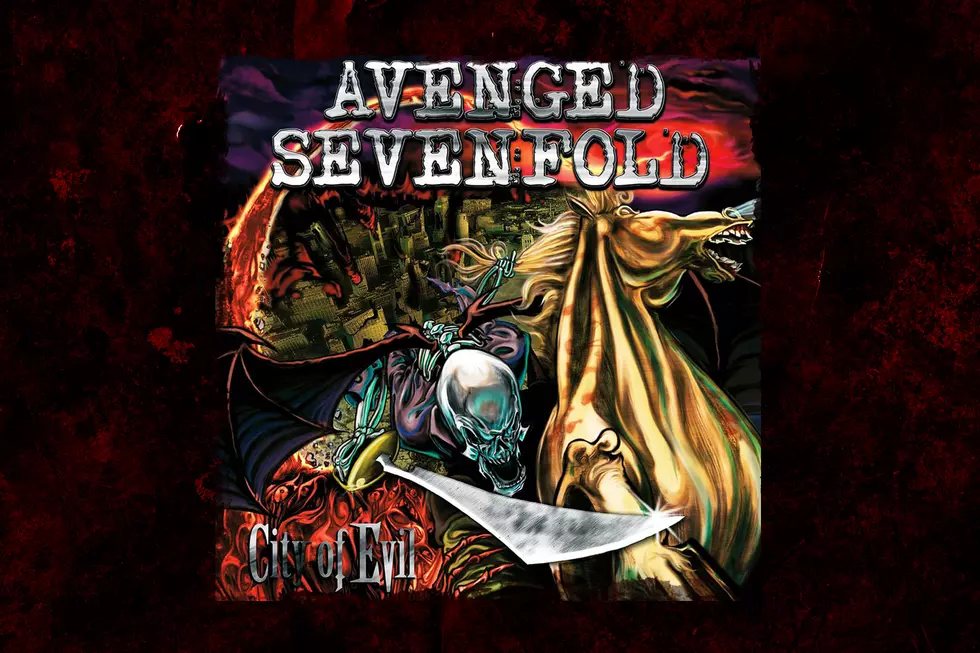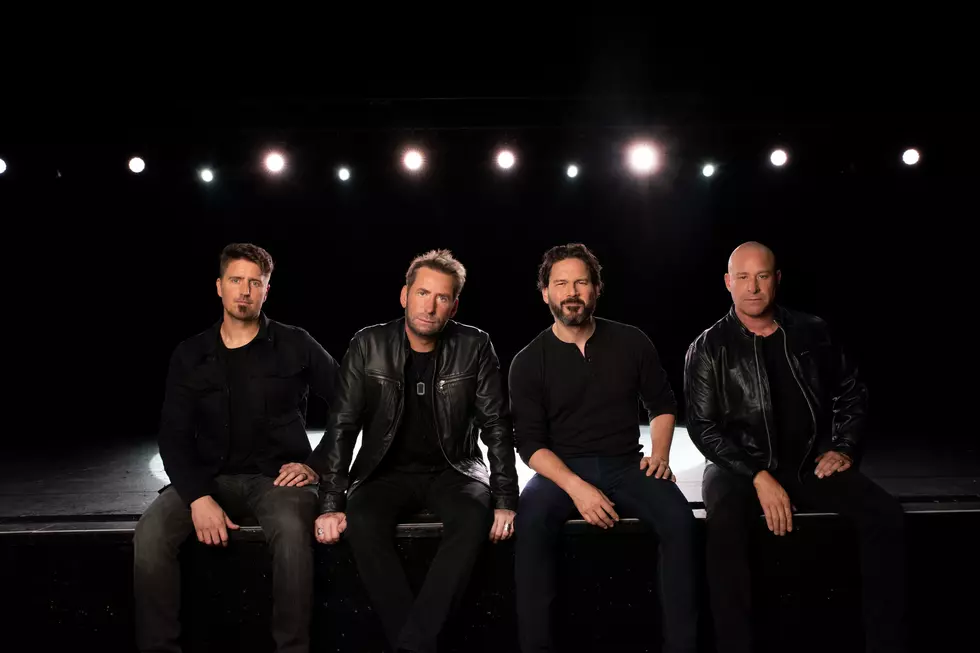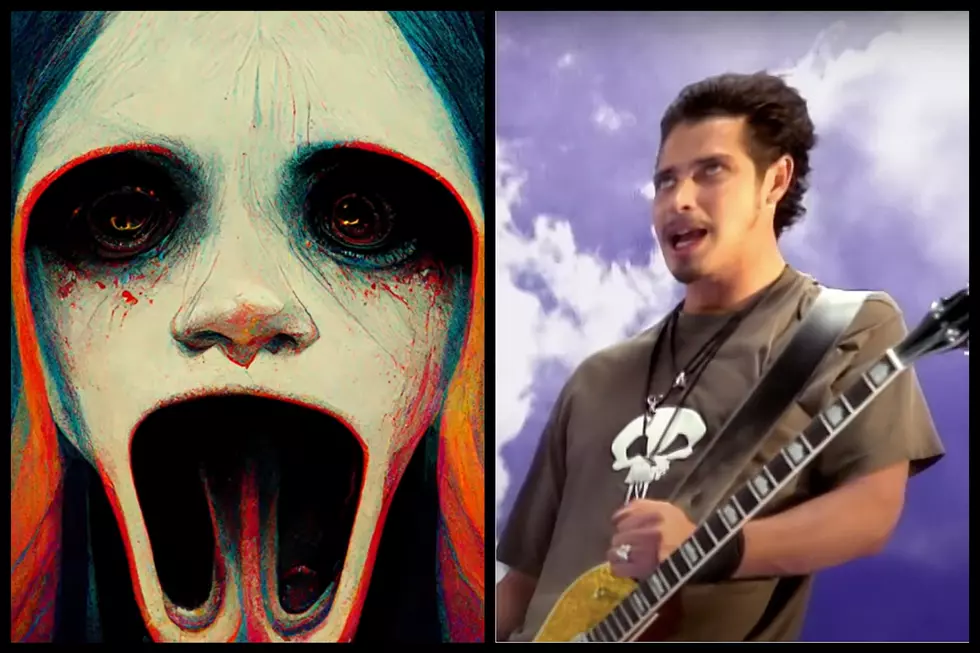
19 Years Ago: Avenged Sevenfold Unleash Their Breakthrough Album ‘City of Evil’
Happy anniversary to Avenged Sevenfold's City of Evil album.
One of the least accepted bands in the Orange County, California, metalcore scene, Avenged Sevenfold abandoned their metalcore formula and left their former peers in the dust with their third album, City of Evil, which came out June 6, 2005.
Emphasizing strong songwriting over speed and brutality, vocalist M. Shadows, guitarists Synyster Gates and Zacky Vengeance, bassist Johnny Christ and drummer The Rev, presented an album that more directly reflected their heavy metal influences: Metallica, Iron Maiden, Guns N’ Roses and Motley Crue.
“We knew we wanted to write a record that was more accessible than the ones we had done before,” Shadows told me shortly after the record came out. “We changed because we wanted to play the kind of music we liked, but we were smart enough to want to be listenable to more people. We knew the metalcore thing had a cap on it. There’s only so far you can go doing that.”
Often, bands shifting from one musical style to another lose a percentage of their fan base and Avenged Sevenfold circa 2005 is no exception. But what they lost from the diehard metalcore crowd they more than made up for from mainstream metal fans who wanted music that was more complex and sonically flamboyant than the songs that were being played on rock radio at the time. Before writing City of Evil, Gates and Vengeance practiced religiously to hone their chops, and when it came time to let loose they played solos that were equally melodic and virtuosic.
Avenged Sevenfold, Live in 2005
“Everybody wants to do something different, and that’s fine,” Gates said. “It’s just that bands haven’t played in that classic lead guitar form for a long time, so people are embracing it when we do it because it sounds different to them. Thirteen and 14-year-old kids don’t know about those classic bands, so guitar solos sound fresh and new.”
In addition to appealing to fans craving classic shredding, City of Evil touched a nerve with listeners who felt metal had lost the tuneful accessibility it had in the ‘80s. Songs like “Bat Country” and "Seize the Day” were catchy enough for fans of hair metal, but still heavy enough to appeal to Maiden fans.
“When we started working on the record, we said, ‘You know what? None of favorite bands are super extreme. They just write really good melodic songs that are still heavy,’” Shadows said.
Avenged Sevenfold, "Bat Country" Music Video
“We love great melodies," added Gates. “We’ve got two guitar players that go for some sort or arrangement and some kind of harmony. We’re not trying to be like anything else, we just do it. And when you have two guitar players in the band who really like to play, that’s what you get. You get some duel leads. You get some catchy parts and some heavy parts because we love both. There are a lot of different sounds you can get out of a guitar and we want to take advantage of a lot of them.”
On their first two albums, 2001’s Sounding the Seventh Trumpet and 2003’s Waking the Fallen, Shadows screamed the majority of his vocals. Before entering the studio to record City of Evil with producer Mudrock (Eighteen Visions, Godsmack), Avenged spent five months writing on a ProTools rig in Shadows’ basement. It was only after they started working on the vocals that Shadows found that many of the vocal parts for the song were out of his range. So he hired vocal coach Ron Anderson, who had previously worked with Axl Rose and Chris Cornell.
Avenged Sevenfold Break Down "Beast and the Harlot"
“He helped me train my voice and taught me a whole new way of singing,” Shadows said. “But no matter what I did, I couldn’t hit the high notes and I was getting so pissed off I’d slam microphones and mike stands into the wall. I was like, ‘Fuck this. We’re writing songs way out of our league. I’ll never hit these notes.’ But Ron told me to keep doing the exercises, and right before we recorded the vocals, my voice settled and I was able to nail them.”
The hard work paid off and Shadows increased his range and gained more control of his vocals, from vibrato-laden balladry to a full-throated, but still melodic roar.
“I knew I never wanted to sound like I did on those first two records again,” he said. “So I did what I needed to do to be able to sing as well as I possibly could. Some people thought we sold out, but more people liked it. But you know what? If the record had failed, we still would have been happy with it because it’s exactly what we wanted to do.”
The metal community was equally happy with City of Evil, which debuted at No. 30 on the Billboard album chart. In August 2009, the album was certified platinum by the RIAA. To date, it has sold more than 2.5 million copies worldwide. Shadows said the band’s appeal stemmed from a combination of image, talent and versatility.
READ MORE: We Answer the Most Searched Questions About Avenged Sevenfold
“Truth be told, there are some good looking members in our band, so little girls like us,” he said, “And then there’s a really prog-type heavy metal vive to our band. So if you just listened to the CD and didn’t know anything about us, you’d be like, “Wow, this is a band that really knows what they’re doing in a lot of different ways. And I think there are a lot of different aspects that add up to a lot people liking us, but not everyone liking us, which is good. I think when everyone likes you, everyone gets sick of you. And there’s enough hate out there that it keeps breeding people that like Avenged Sevenfold.”
Loudwire contributor Jon Wiederhorn is the author of Raising Hell: Backstage Tales From the Lives of Metal Legends, co-author of Louder Than Hell: The Definitive Oral History of Metal, as well as the co-author of Scott Ian’s autobiography, I’m the Man: The Story of That Guy From Anthrax, and Al Jourgensen’s autobiography, Ministry: The Lost Gospels According to Al Jourgensen and the Agnostic Front book My Riot! Grit, Guts and Glory.
The Best Album by 35 Legendary Metal Bands
Gallery Credit: Joe DiVita
More From 96.5 KNRX










